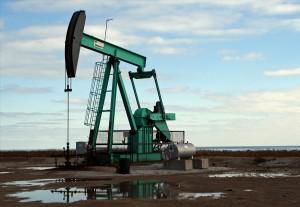 Both NPR and the New York Times ran stories last week that highlighted the role of natural gas in the U.S. energy economy. NPR interviewed Amy Myers Jaffe, director of Rice University’s Baker Institute Energy Forum. Jaffe predicted that natural gas prices would remain low for the foreseeable future, specifically 5-10 years. The New York Times article details the booming production of oil and natural gas from sources that were virtually dry a few years ago.
Both NPR and the New York Times ran stories last week that highlighted the role of natural gas in the U.S. energy economy. NPR interviewed Amy Myers Jaffe, director of Rice University’s Baker Institute Energy Forum. Jaffe predicted that natural gas prices would remain low for the foreseeable future, specifically 5-10 years. The New York Times article details the booming production of oil and natural gas from sources that were virtually dry a few years ago.
What does this mean for renewable energy? For sustainability? The fact that the horizon for natural gas is 10 years demonstrates the continued lack of forward thinking that will be necessary for sustainable energy. Until we re-frame the conversation and consider 100 or 200 years down the road (when the supply of fossil fuels will all but disappear), there is little to no room for renewables to enter the mix. As was alluded to in last week’s op-ed, taking a long term perspective runs counter to so much of instant gratification that society is seemingly predicated upon these days.
The near term benefit of cheap natural gas and higher production of domestic oil pushes the question of sustainable energy back. While domestic energy production is a step above imported in terms of both security and reduced transportation, it only serves to prolong the shift to energy sources that will not run out. Another op-ed from a few weeks back questioned the sanity of extracting energy when the earth is constantly bombarded by solar energy. To take this a step further, the news that wastewater injected back into the ground has been linked to earthquakes in the middle of the country, further demonstrates the absurdity of our current energy economy. Wastewater, which is used in hydraulic fracturing (fracking), is disposed of in deep wells. These are the wells linked to earthquakes.
Here’s another way to think about this. Fracking has been around for several decades, but nature has been around for several million (decades). Why not take the route of biomimicry and look to see how nature deals with contaminated water? Consider water that is filtered through layers of sedimentary rock, removing debris as it is naturally purified. Water is a fairly precious resources, though we don’t always treat it that way. Like it or not, fracking isn’t going anywhere. Instead of the ludicrous practice of shoving it back into the bowels of the earth, let’s look to nature for a solution.
With all of these advancements, we have moved further from sustainable goals and more toward those that rely on technology. The contamination, chemicals, and water usage needed for exploiting previously unassailable reserves are only part of the problem. Continuing to quench our collective thirst for hydrocarbons does not in fact serve to further the aims of sustainability. Don’t be fooled, natural gas is an unsustainable, non-renewable resource, despite its domestic production and lower emissions, as compared to coal and oil. It still relies on extractive measures, and now with the increased reliance on fracking and waste water wells, presents new problems of water contamination (at far greater levels than before) and greater seismic activity. Sustainability has suffered a setback. Until we can develop energy sources that are renewable and sustainably harvested, natural gas and its cohort only delay the integration of the alternative. If you’ve bought the company line, then your believe natural gas is a sustainable option.
[Image source]

